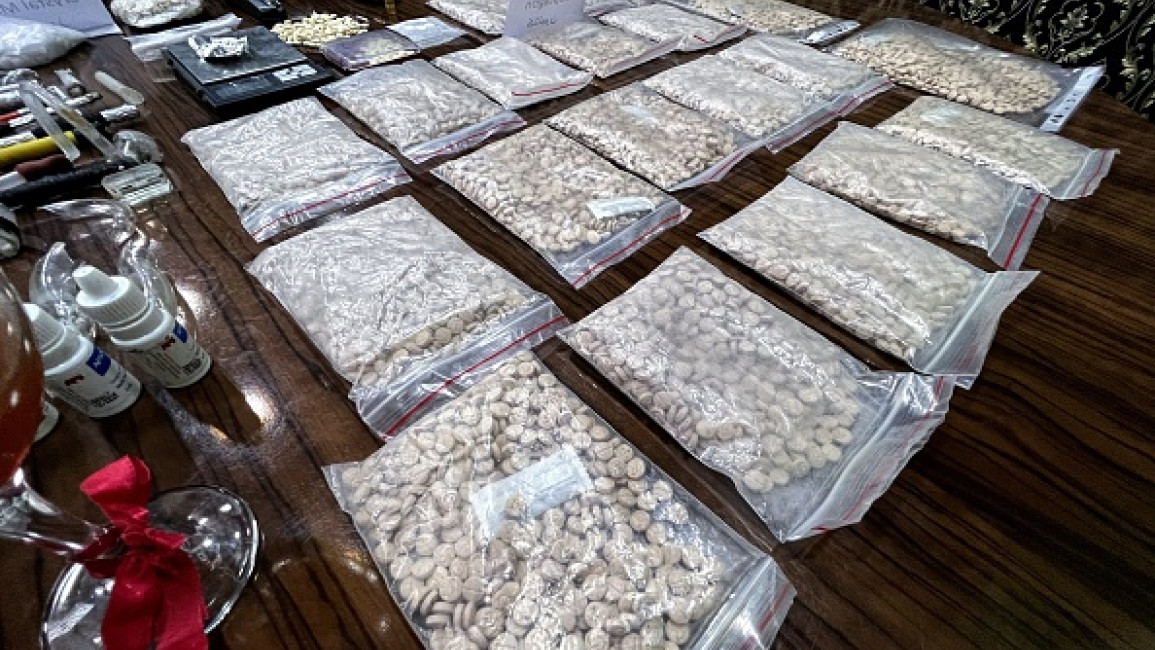Syrian, Jordanian intelligence officials meet over drug smuggling
Syrian and Jordanian intelligence and military heads met on Sunday in the first in a series of meetings meant to curb drug smuggling from Syria into Jordan, a persistent issue straining relations between the two countries.
The two sides "discussed the danger of drugs, its sources of production and smuggling and the groups that are organizing and supervising the smuggling operations over the Syrian-Jordanian border," a statement by the Jordanian MFA said on Sunday night.
The Syrian regime, alongside pro-Iranian militias and Hezbollah, is allegedly behind the production and smuggling of drugs over Jordan's border and into the other Arab states, particularly the Gulf.
Jordan has been struggling to combat drug smugglers along the border with Syria, issuing a "kill-on-sight" order after a soldier was killed in a gunfight with dozens of smugglers in late 2021.
The Syrian regime's complicity in drug smuggling has emerged as a critical stumbling block in its effort to re-integrate into the international community. The Syrian regime has been an international pariah since its bloody crackdown on protesters who participated in a peaceful uprising in 2011.
Arab countries have been steadily bringing the regime back in from the cold, inviting it back into the Arab League in May 2023, and countries like Saudi Arabia are re-opening embassies in Damascus.
While the Syrian regime pledged in May to crack down on the drug trade, analysts have cast doubts on whether or not it has the will or the capacity to stop smuggling operations.
Estimates have put the value of a single drug exported from Syria – the amphetamine captagon – at around US$5.7 billion.
The trade, while believed to be condoned by the highest levels of the Syrian regime, is allegedly run by pro-Iranian elements of the regime, such as the Fourth Division and affiliated groups.
A bill was introduced into US Congress on 18 July, enabling the US to impose sanctions on individuals and networks associated with captagon smuggling networks – a further pressure card meant to reign in Damascus' alleged role in drug smuggling.



